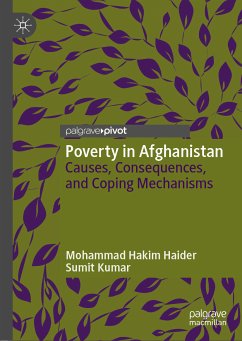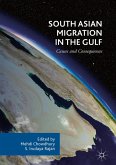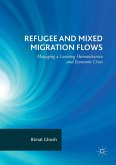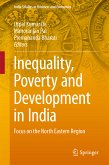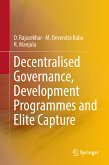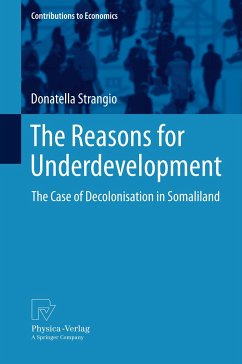This book examines the patterns, characteristics, causes and coping mechanisms of the poor in Afghanistan applying econometric and statistical techniques. The authors address and identify the extent of poverty in Afghanistan over the years, the spatial patterns and regional imbalances of poverty in Afghanistan, the distinguishing characteristics of the poor in Afghanistan, and explore shocks faced by the poor in Afghanistan as well as subsequent coping strategies. Based on household level data collected under the 'National Risk Vulnerability Assessment' (NRVA) survey of 2003, 2005, 2007/08 and 2011/12 of Afghanistan, the authors identify options that may enable policy makers and other stakeholders to further enable the inclusion of the poor in development processes and to successfully cope with poverty and its adverse outcomes. This short book will be of interest to students, researchers, academicians, policymakers, international agencies and NGOs at international and national levels.
Dieser Download kann aus rechtlichen Gründen nur mit Rechnungsadresse in A, B, BG, CY, CZ, D, DK, EW, E, FIN, F, GR, HR, H, IRL, I, LT, L, LR, M, NL, PL, P, R, S, SLO, SK ausgeliefert werden.
Es gelten unsere Allgemeinen Geschäftsbedingungen: www.buecher.de/agb
Impressum
www.buecher.de ist ein Internetauftritt der buecher.de internetstores GmbH
Geschäftsführung: Monica Sawhney | Roland Kölbl | Günter Hilger
Sitz der Gesellschaft: Batheyer Straße 115 - 117, 58099 Hagen
Postanschrift: Bürgermeister-Wegele-Str. 12, 86167 Augsburg
Amtsgericht Hagen HRB 13257
Steuernummer: 321/5800/1497
USt-IdNr: DE450055826
Bitte wählen Sie Ihr Anliegen aus.
Rechnungen
Retourenschein anfordern
Bestellstatus
Storno

